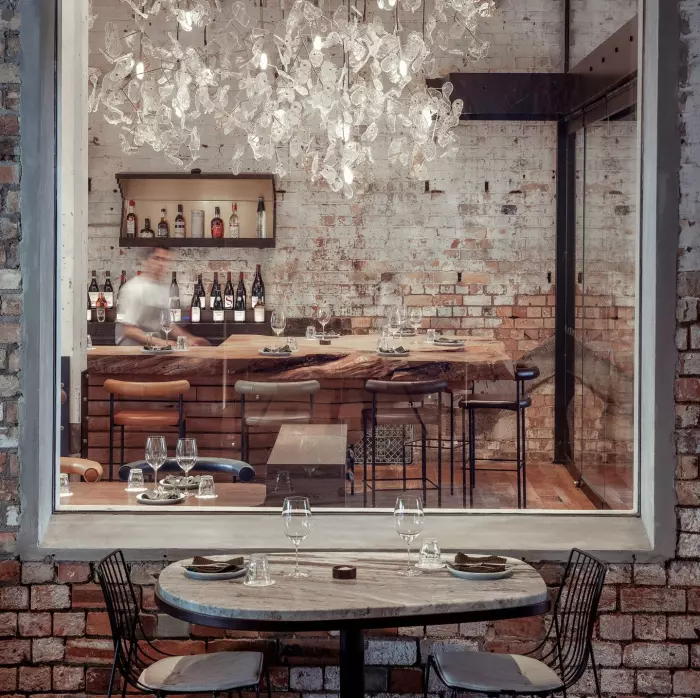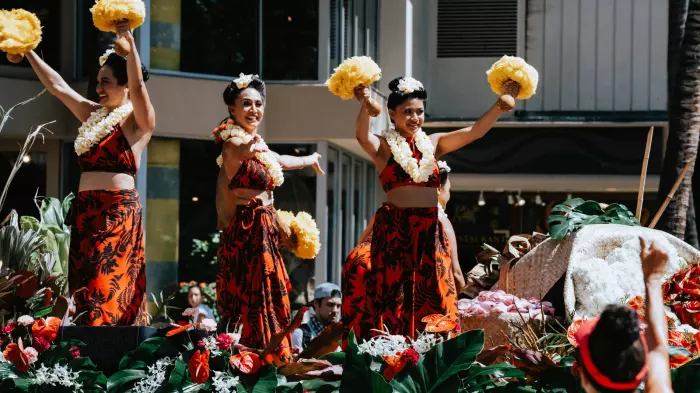I generally look down on folk who order steak at a seafood restaurant. Or vice versa.
Last weekend, I broke that rule. I’ll likely do it again.
The deal breaker was a strip loin of wapiti – otherwise known as elk – served at kingi.
The eatery, on the ground floor of the heritage Masonic House, is next to, and part of, the gilt-edged Hotel Britomart, the centrepiece of a thriving Britomart heritage precinct in central Auckland.
Since it opened in the latter part of 2020, kingi's built a reputation for seafood. And while that may be the drawcard, it dabbles in land-based wild-caught meats, and venison is a house specialty.
The Fiordland-sourced wapiti, which in this case was served with black garlic, fig and aubergine (the latter not generally my favourite, but I tolerated it in the context of the dish), was brought onto the menu by owner and chef Tom Hishon. Served rare, it's melt-in-the-mouth delicious
Amazing eating
During the pandemic, Hishon and his industry peers founded WithWild and worked with conservation groups and the Fiordland Wapiti Foundation to remove a set number of the elks from the Fiordland National Park each year instead of just leaving them in place after being culled. (The populations exploded during covid in the absence of hunters.)
“These animals graze on things like mountain daisies and are amazing eating, without tasting gamey,” Hishon said.
But for kingi – a colloquial abbreviation for kingfish – seafood remains front and centre, with an array of fish, crustaceans, molluscs and kina (sea urchins) to rival anything you’d find anywhere.
"Proud of as a country"
Hishon, who also owns Daily Bread bakeries across Auckland, has been working in kitchens since the age of 14. The Southlander is not only a keen fisherman but also a fierce proponent of sustainably sourced kaimoana.
Hishon and business partner Josh Helm worked with Hotel Britomart developer Peter Cooper in opening a restaurant that “we could be proud of as a country” and potentially represented the first thing that international tourists would taste on arrival.
And he wants to do his bit as a chef to ensure the industry isn’t just paying lip service to its promises but actively working to ensure a thriving, long-term natural resource.
“On paper, it was a tough ask. In reality, the easiest and most sustainable thing would have been to put chicken on the menu.”
Ethically caught
Now, he said, if you’re at kingi, you can be sure that what you’re eating is NZ sourced, ethically caught and doesn’t put any pressure on fish stocks.
Kingi sources all of its products from NZ waters and uses product suppliers such as Chatham Island Food Co, which uses line and hook methods and holds quota for blue cod, crayfish and pāua. Claire Edwards and Troy Bramley, out of Tora Bay in South Wairarapa, dive for live pāua and crayfish.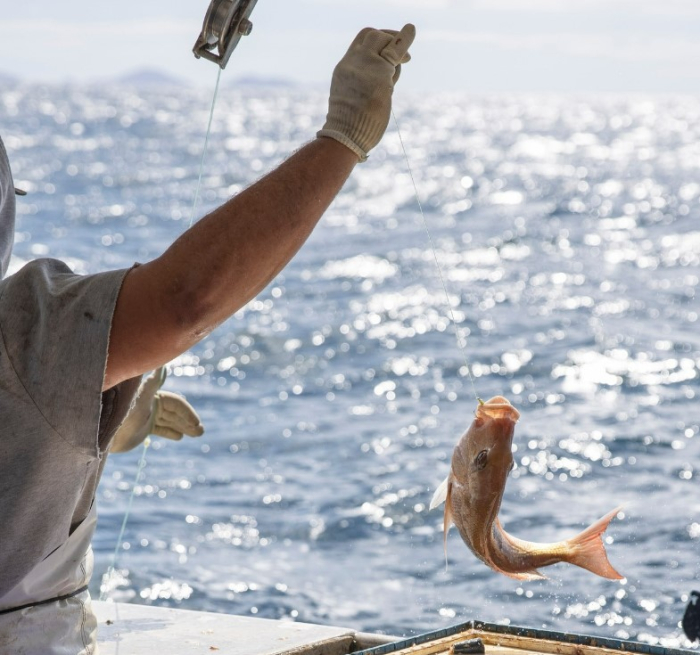
kingi supplier Leigh Fish uses long-line methods of catching fish. (Image: Leigh Fish)
Its octopus is also supplied as a bycatch of the crayfishing industry, and oysters are sourced from Waiheke Island’s Te Matuku Bay – eschewing the more famous Bluff oysters on the basis of their quality and farming credentials.
"I've eaten my fair share of Bluffies, but their harvesting is slightly more invasive on the seabed," Hishon said.
He's got a similar view on salmon farming, which he says creates a "scarring" effect on the seabed floor.
“Bread and butter” customers
Hishon said that while kingi was part of the wider hotel, it didn’t want to be known as a hotel restaurant. “Our vision was really to create a ‘regulars’ restaurant, and I think we’ve got there.”
And while it was great to get the “buzz” that comes with international visitors – Americans being the number two market at Hotel Britomart – Hishon said its “bread and butter” customers were local, at about 90% of patrons there for a coffee, breakfast, lunch or dinner.
Kingi has certainly caught the attention of discerning local diners, landing a two-hat rating in 2022.
For ultra-foodies, Hishon and the hotel's head chef, Andrew Lautenbach, can host smaller groups in the chef's table upstairs at The Libraries, a private and very chic function space on the hotel's first floor.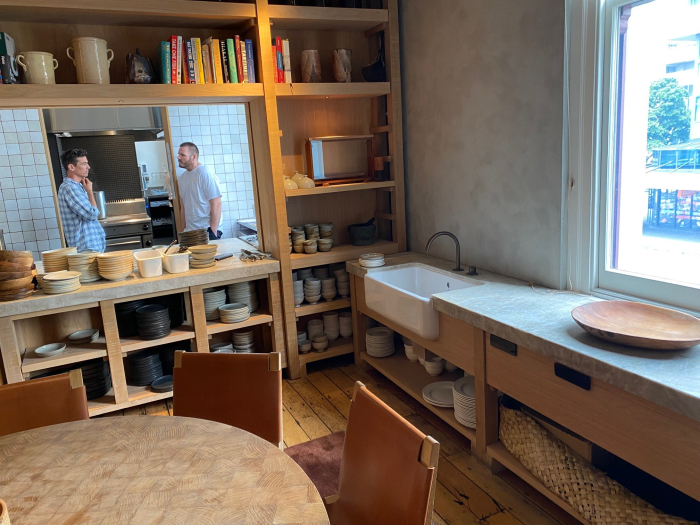
Chef's library: Tom Hishon, left, discusses the menu with Andrew Lautenbach. (Image: BusinessDesk)
We stuck it out downstairs, opting to be near the buzz of the kitchen and into the "taste of kingi", which at $98 per person, involves a seven-course meal with suitable beverage accoutrements.
The introduction – Waiheke Island oysters and a trevally kokoda served with finger lime and cucumber – was accompanied by a delicious Louis Roederer Brut champagne. The oysters, as promised, were deep and luscious.
Next up was a Chatham Island kina on toast and pancetta. My dinner partner loved it but I found it a little overwhelming.
Not so with the absolute star of the oceanic show in the green-lipped Mills Bay mussels, served with a spicy 'nduja sauce. The fromage blanc, which came with raspberry and black olives, rates a mention here, too. Both were married to a Cloudy Bay Te Koko sauvignon blanc.
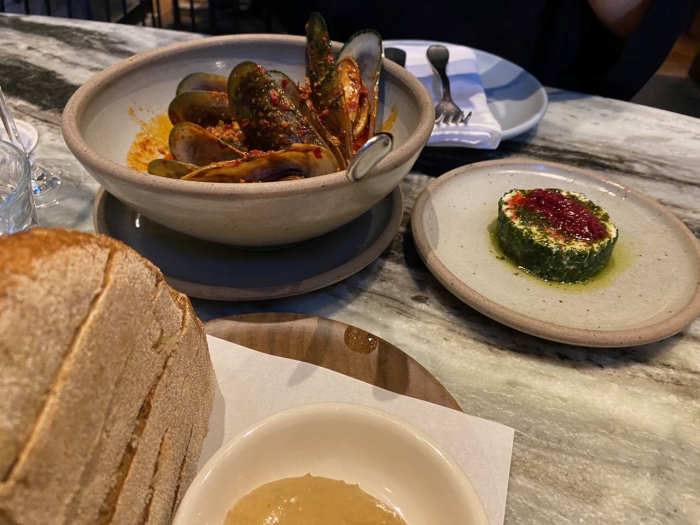
Green-lipped mussels and fromage blanc: stars of the show. (Image: BusinessDesk)
Next up was a Kaipara Harbour yellow belly flounder, which was succulent and absolutely delicious, swimming in an almond, citrus and caper sauce. It was served with a sultry chardonnay courtesy of the Hotel Britomart’s sister property at The Landing in the Bay of Islands.
After the venison, we were served a Miann chocolate mousse with cream, pumpkin seed and praline – a fitting end to a wild culinary ride.
Booking is recommended, though you can generally find a table in the glass-enclosed "Lobby Lane" laneway at the entrance to the hotel.
● BusinessDesk were guests of the Hotel Britomart and kingi.
Kingi: Tuawhiti Lane, 29 Galway St, Britomart, Auckland.
Hours: 7 days, all-day service & dinner 7am to late.
Phone (09) 300-9596
kingibritomart.com


